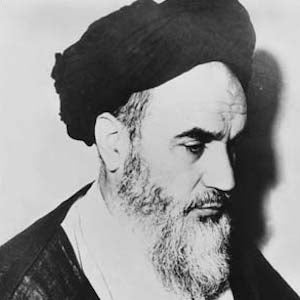Israel’s official reaction to the death of Ayatollah Ruhollah Khomeini was an expression of hope that relations between Israel and Iran will improve.
Khomeini, Iran’s spiritual leader and main political force since the overthrow of the Shah 10 years ago, died Saturday at the age of 89.
A Shiite Moslem religious extremist, he was a bitter foe of the Western world and all its ways, but his most savage hatred seemed to be reserved for Israel.
The Foreign Ministry issued a statement Sunday saying that “Israel can only hope that the future leadership of Iran will adopt a more positive position on the issue of human rights and its attitudes toward the Western world and Israel.”
Prime Minister Yitzhak Shamir’s media adviser, Avi Pazner, said he hoped that Khomeini’s successor would adopt “a more moderate line, more in keeping with the friendship that existed between the Iranian and Jewish people.”
Education Minister Yitzhak Navon said that he believes the death of the ayatollah was a gift from heaven. “I think that the element that is vehemently anti-Jewish, anti-Israel, anti-Zionist, anti-everything was taken up from us to heaven. This may introduce a chance of changes. I am afraid it can’t be worse than it was.”
Uri Lubrani, Israel’s former ambassador to Teheran, and now Israel’s coordinator for Lebanon, said in a radio interview that Israel must look for ways to talk with the post-Khomeini leadership.
DOUBT ABOUT SUCCESSOR
There is speculation among Israeli political analysts and commentators over just who that leadership will be. The president of Iran, Ali Khamencei, was chosen as successor by the ayatollah, who was seriously ill for some time before his death.
But experts here doubt he will last very long. They believe Iran eventually may be ruled by a junta of three or four leaders.
“I don’t buy the notion that Khamenei will succeed Khomeini,” said David Menashri of Tel Aviv University’s Dayan Center, a frequent commentator on Iranian affairs.
“Khamenei is the compromise figure,” he said on Israel Television.
In Washington, State Department spokeswoman Margaret Tutwiler said Monday that if Iran wants to improve its relations with the United States, it must use its influence over the hostage-takers in Lebanon to free the hostages, as well as end its support of global terrorism.
JTA has documented Jewish history in real-time for over a century. Keep our journalism strong by joining us in supporting independent, award-winning reporting.
The Archive of the Jewish Telegraphic Agency includes articles published from 1923 to 2008. Archive stories reflect the journalistic standards and practices of the time they were published.




